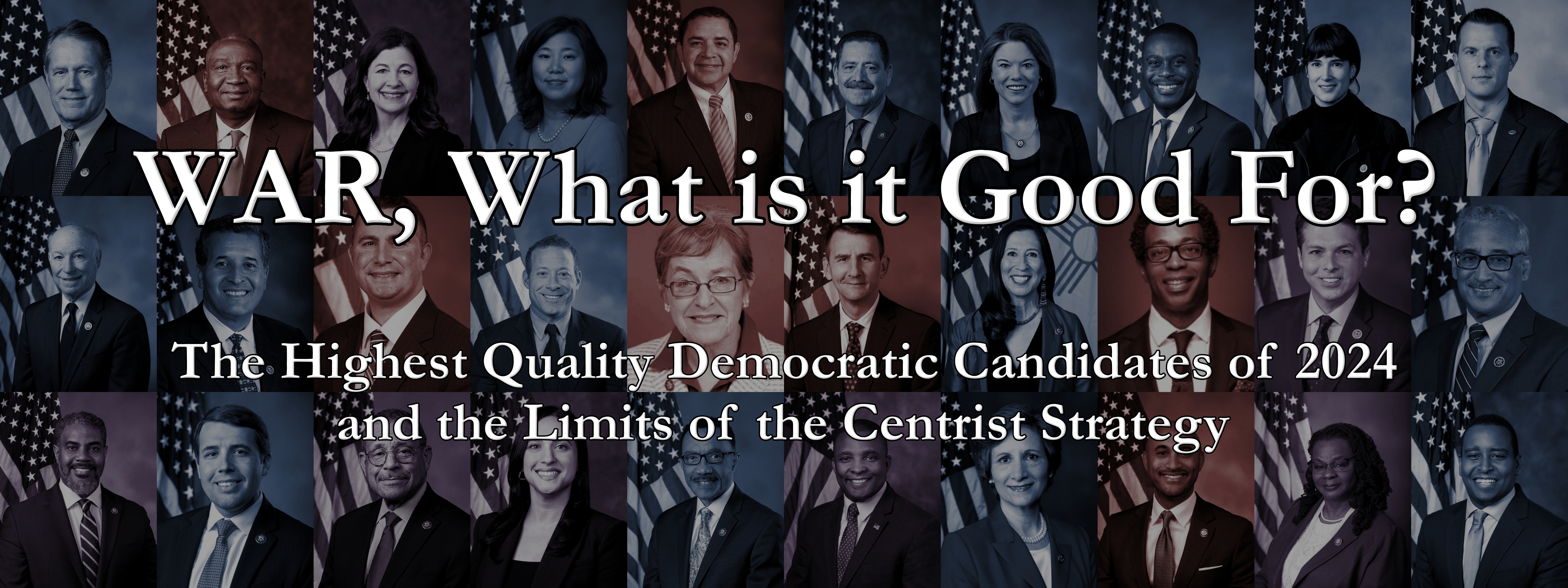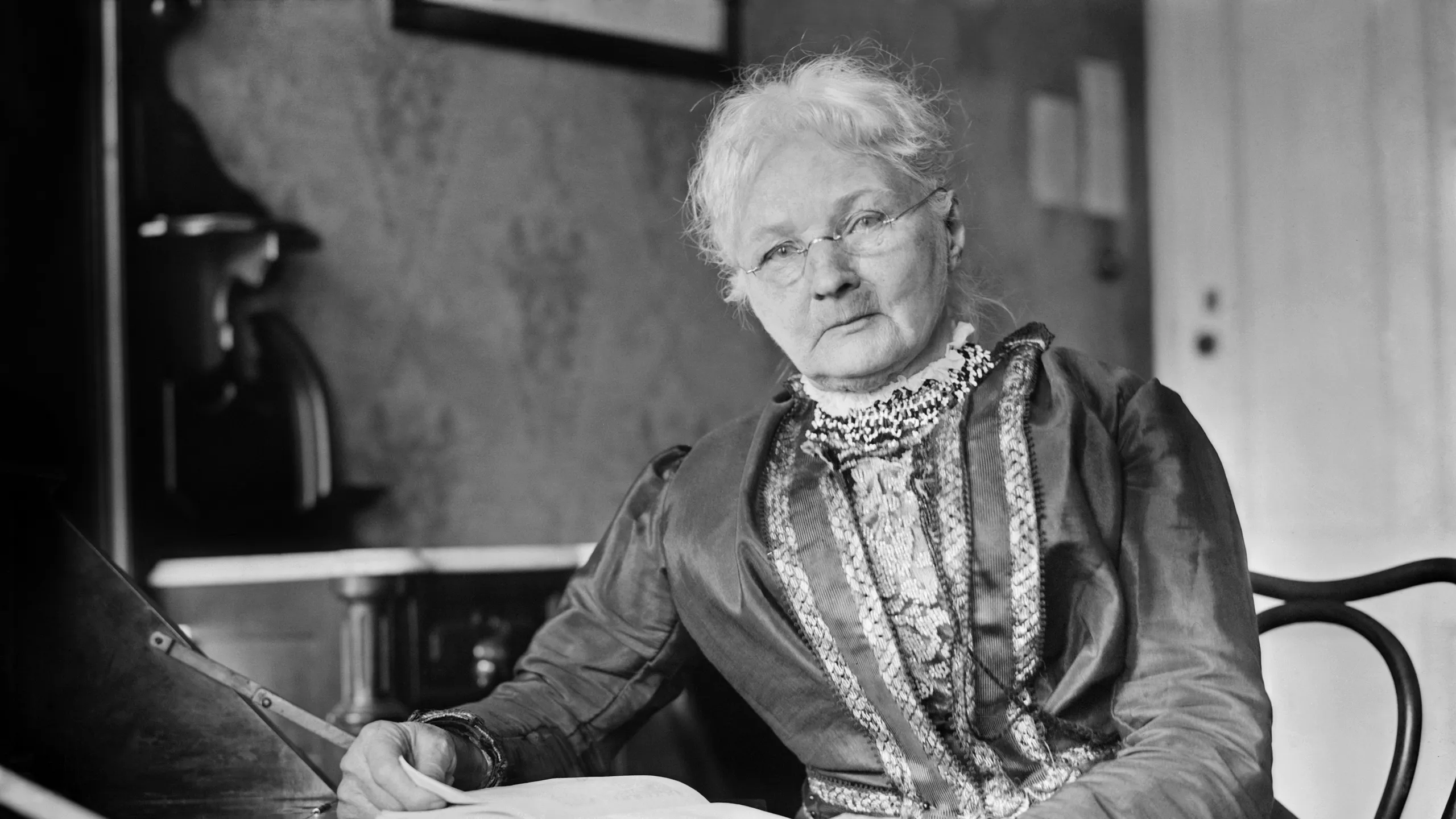The Cathartic Misery of Frank Miller's Daredevil: Born Again
Marvel Graphic Novel Collection
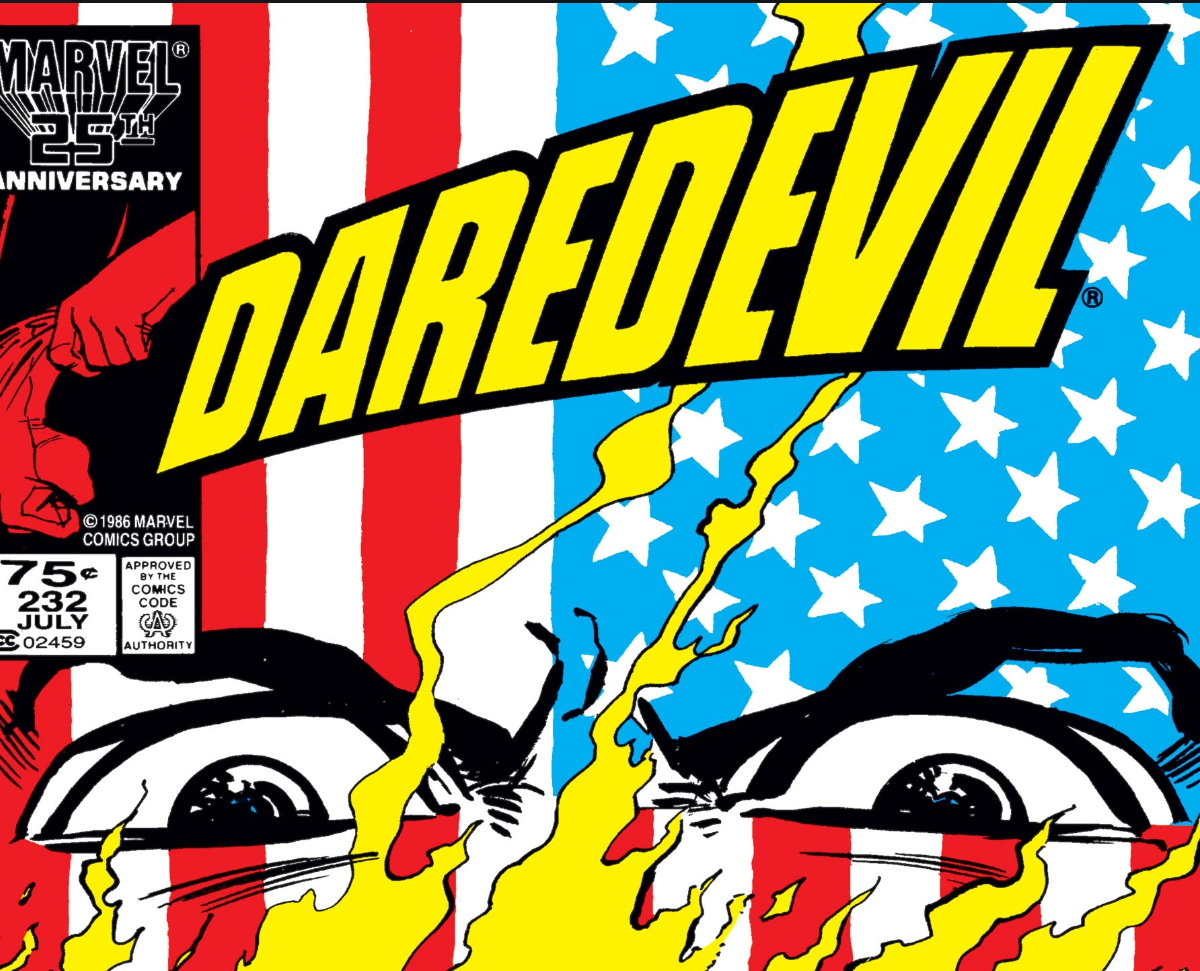
Frank Miller and David Mazzucchelli’s 1986 Daredevil: Born Again is one of the most highly regarded story arcs in the superhero space. As the title implies, the arc provides a point for new fans to jump on to the series, without ignoring or outright dismissing the long history of Daredevil comics. The story sees Daredevil broken down completely, and then examines the core components of the hero in an attempt to redefine the character’s trajectory going forward, to great success. Over the course of eight issues, 226-233, Matt Murdock and his readers go on a dramatic journey to examine what it means to be the Man Without Fear.
Why Be A Daredevil?
Matt Murdock is an interesting crime fighter in that he works on both sides of the law as a vigilante and lawyer. This dichotomy is central to the conflict of the character, and is a focal point in the series even early on when the plots for the title are more simplistic. It is common for Daredevil to view himself in and out of the red costume as two distinct men, with each one fighting their own unique fronts in the war against injustice. Unfortunately for Daredevil the results of putting time and energy into either one of his struggles tends to impact the other in the reverse direction.
A lawyer can only be so effective when he spends all night brawling on the streets in spandex, but justice can’t always come from a courtroom. When one man assumes all the responsibilities that Daredevil does, contradictions are inevitable.
At the start of the Born Again arc, Matt is questioning himself and his logic for continuing acting as Daredevil. He is starting to notice that crime is not being suppressed by his fists, and the apparent relapse of the reformed villain Gladiator is nearly too much for his mentality. Matt is raging on the inside as he starts to really see the futile nature of so much of his crusade, though he turns that anger outwards and is able to find blame in all those around him. He is quite miserable.
Matt goes through his internal crises initially in isolation. It’s ironic that as he laments his inability to affect change in the world the reader is given insight into the lives of his closest friends, who largely are floundering for a shred of personal support in their own worlds. His best friend and former law partner, Foggy finds solace from the recent closure of their law office in Matt’s ex-girlfriend Glorianna. Across the country Karen Page, former secretary for Nelson and Murdock, and lost love of Matt is struggling against drug addiction's harsh grip. Three of the people closest to Matt just need someone to be there for him, but he’s crying himself to sleep at night over not being able to beat the world into a better place with his billy clubs. Daredevil’s flaws and misconceptions of himself are some of the most compelling traits from the hero, and this arc is a stellar piece of characterization thanks to his humanizing shortcomings.
For many comic heroes there is little to be gained by examining the logic behind their decision to be a caped vigilante, it’s a necessary suspension of disbelief in order to have fun, but Daredevil frequently invites the conversation due to his core concept of being a lawyer by day. Born Again allows reality to seep into the book by placing Matt and the rest of the cast in relatable dire straits of economic uncertainty, substance abuse, and mental illness. The character’s problems feel rooted in reality, even when the specific depictions are over-the-top. With the characters firmly grounded in a more realistic tone, the book decides to place one of the most traditional comic book tropes of the secret identity as the central conflict.
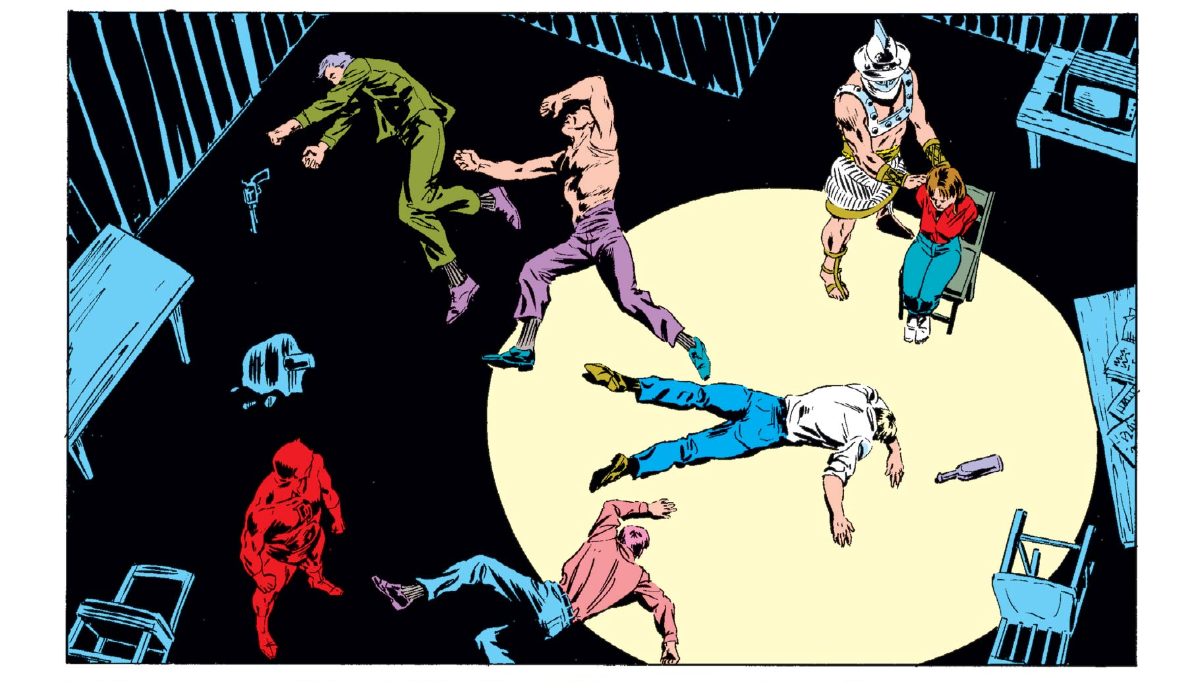
Secret Identity or Lack Thereof
Countless heroes over countless titles have dealt with the ongoing issue of keeping their identity secret. Some instances can come across contrived, such as Thor with his Dr. Donald Blake alter-ego or Iron Man being Tony Stark’s bodyguard, while others are more believable, like Spider-Man who is blasted in the papers as a public menace. Daredevil has always fallen into the latter camp, with even just his law career being a justifiable reason for the secret identity trope. Born Again takes the concept and challenges anyone who ever questioned the legitimacy of the fear of exposure in the first place.
The shared nightmare of superheroes becomes a reality for Daredevil when Marvel’s nastiest crime boss, the Kingpin, gets ahold of the name Matt Murdock. The name is extracted from Karen in an over-the-top scene where she is in the throes of addiction, and promptly delivered to the villain. Kingpin leverages his vast resources alongside Matt’s now public status of criminal vigilante to ensure the fall of Daredevil is swift.
In response to the revelation of Daredevil’s identity, Matt’s bank accounts get frozen first, and as the news spreads his social reputation enters a freefall. In no time flat the once successful lawyer is virtually penniless and looked upon with suspicion even by those who used to respect him. In a dramatic and unexpected fashion Matt Murdock finds himself bearing the weight that falls on those mixed up in the criminal justice system everyday. He of course goes immediately insane.
Still not grasping the lesson that he can’t punch away his problems, Daredevil tries to take the fight to the top and assault the Kingpin man to man. His loss at the villain's hand and apparent death set the stage for the titular rebirth of the hero. Daredevil’s recovery is aided by a nun/nurse who turns out to be intimately connected with Matt. There is plenty of flowery Christian imagery along the way, though that whole side to the comic feels a bit style over substance.
During Daredevil’s absence Kingpin is never convinced of the vigilante’s death, and puts vast amounts of money and manpower into drawing him out. The story follows reporter Ben Urich as he attempts to investigate the entire situation, and his exploits serve to reinforce the idea of Kingpin’s long reach into all aspects of society. Unable to draw Daredevil out and failing to get rid of Urich, Kingpin is forced to turn to more drastic measures.
The Powerful and the Criminal
After exhausting his local resources in finding Daredevil, Kingpin calls in the big guns in the form of a super soldier named Nuke. Created, owned, and operated by the United States of America, having access to Nuke is yet another showcase of the extent of Kingpin’s power and the true place he fills within society. The book establishes that the crime lord is present all through New York City, and Hell’s Kitchen specifically. He is shown as controlling the police, the doctors, the other criminals, and everyone in between. The addition of Nuke, as an operative of the government, raises the stakes and consequences of Daredevil’s immediate fight, but also has greater implications for the wider ideological struggle plaguing the protagonist and underlining the arc.
In a harrowing sequence Daredevil seems poised to take down Nuke, when unlikely allies step in to help the pill-popping supersoldier. The Avengers, including Captain America, Iron Man, and Thor, arrive and step between Daredevil and Nuke, offering protection to the madman terrorizing the city. It is explained that Nuke is under the purview of the federal government. While Captain America goes on to question and challenge the system, the moment where Daredevil is stopped by the premier super team is stark and works well at crafting a better reasoning for Matt's vigilante actions.
In the moment with his most respected heroes standing in the way of him, Daredevil’s pursuit to change the system and take down the bad guys comes across as nothing more than futile and naive. Even when he comes close to taking down a pillar of the criminal world or an objectively dangerous mass killer, the powerful can still arrive and stop him in his tracks should they see fit.
But he keeps going. Daredevil embodies his moniker of Man Without Fear the most when he is pitted against entities much larger and more powerful than him. In a one to one scenario, Daredevil can defeat most criminals thanks to his superpowers, but it is when those powers are incapable of overcoming the situation that the character really comes alive. In some of his best early adventures, the hero’s radar sense is so tangential it is comical. Though a basic concept, it is core to the hero that he fights against those that are not just in the wrong morally but that have power which would otherwise go unchecked. He fights the battles which scare others.
Born Again
There’s plenty to like going on in Born Again, but as it goes not everything feels truly of one piece. The arcs of Karen and Matt specifically are a bit nebulous and weird, which works well at points but leaves the reader uninvested just as often. The cartoonish simplicity of Karen’s drug addiction and the fantastical rehabilitation properties of a re-lit romance are awkward compared to the nuanced and multi-faceted plot involving reporters and crooked cops. The depiction of drug addiction in general is cringey or in poor taste at times, but in truth Karen as a character is used to push the narrative forward and as a symbol for Matt’s changing priorities. She is less of a well rounded human and more of a plot tool in these pages, even if the problems she goes up against themselves are harsh and too commonly relatable in reality.
The story being told is focused on dissecting the character of Daredevil and elevating the elements that work the best, so the flattening and resigning to the margins of other characters is not entirely arbitrary. The vast majority of the book reads as purposeful, and that does elevate it above a large portion of its superhero competitors.
There is a lot of moralizing and considerations of purpose or place in the world by the characters but the answers are kept muddy and even the most blatant of villains like Kingpin are given sympathetic moments. The result is a melodramatic over-the-top story that still is able to feel dark and real to an impressive extent. The silliness and caricature of the superhero world is never abandoned even when confronting serious concepts, which works as a dual edged sword accentuating the crazed intensity of a madman character like Nuke, but diminishing the impact of elements such as Karen’s addiction. The title strives to address some of the fundamental, and often contradictory, tropes of the medium and succeeds broadly without preaching or talking down to the reader.
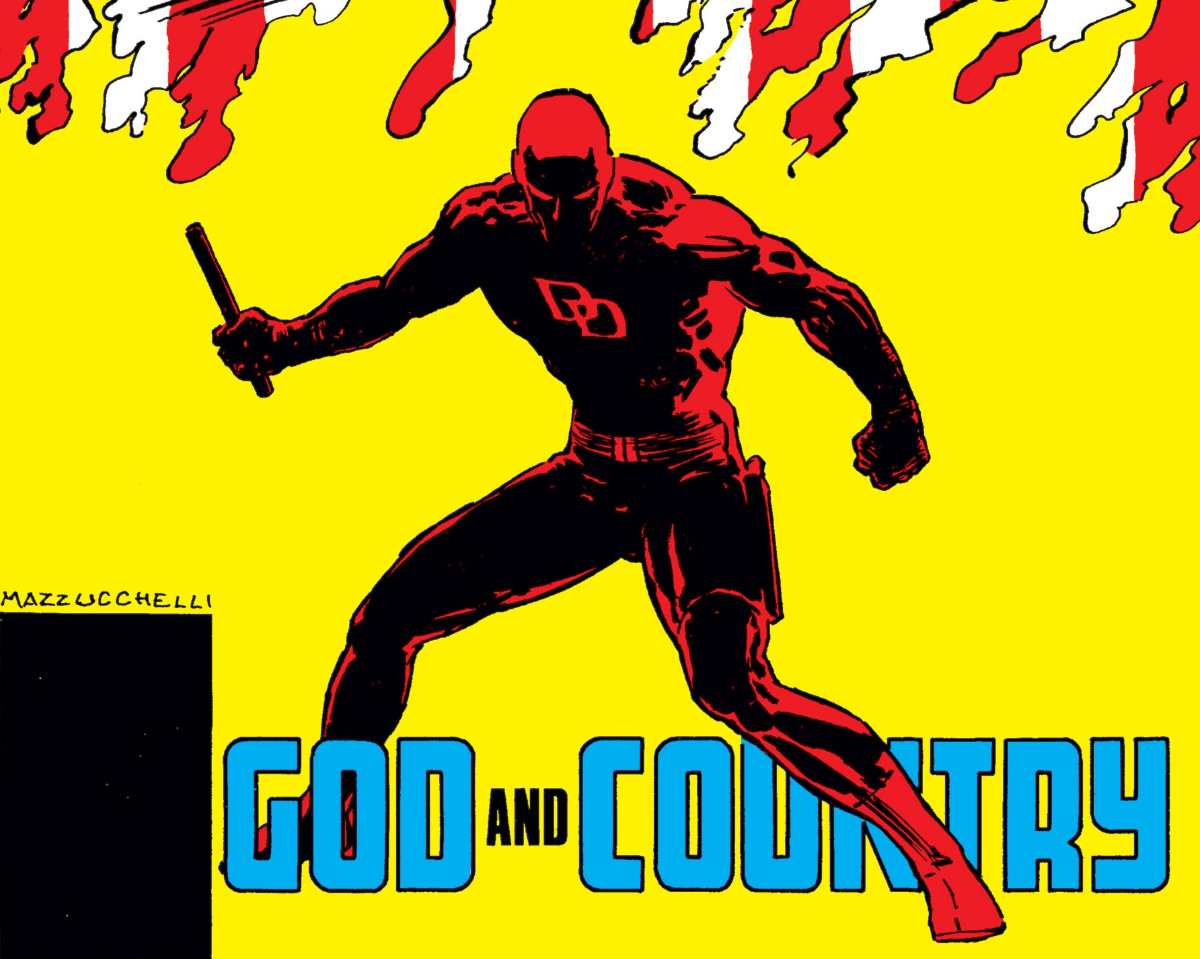
Citation Station
Daredevil 226-233
Frank Miller (writer), Denny O'Neil (writer), David Mazzucchelli (penciler, inker, colorist), Dennis Janke (inker), Max Scheele (colorist), Christie Scheele (colorist), Joe Rosen (letterer).

